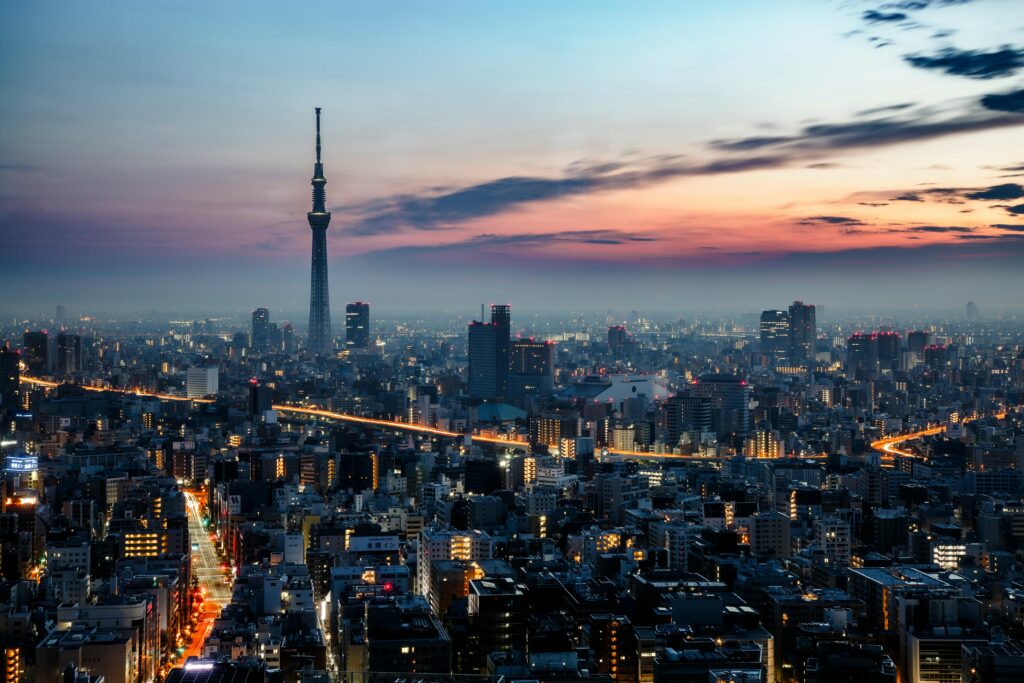Coming to Japan to work has many hurdles—just like moving to any foreign country that requires a visa. If you’re arriving with a clear-cut job that simply requires company sponsorship, much of the bureaucratic headache can be handled in-house. But what if that’s not your situation? What if your work is a little less clear cut and a little more…flexible?
I’ve lived and worked in Japan for the past three years as a freelance journalist—a job I love, but one that comes with a fair share of bureaucratic and financial challenges. Before this, I lived in Japan as an assistant language teacher on the JET Programme, which helped me build some useful connections.
Working for multiple clients, publishing across platforms, doing my own taxes, and handling visa applications and renewals isn’t easy. It’s often fun and rewarding, and I know I’m fortunate—but it’s not without its trials.
I want to share my journey in the hopes it provides a glimpse into what it takes to freelance in Japan. Of course, this is just one path—every freelancer has their own.
How I got into freelancing
This may disappoint many American citizens reading this, but I was able to get my start in Japan thanks to a working holiday visa. Sorry, United States, you don’t have a working holiday deal with Japan.
As a British citizen, I was able to apply for a working holiday visa through the Japanese Embassy in London. This allowed me to enter the country with no company sponsorship lined up and I could work across a variety of sectors with little to no limitations. This was ideal, as it meant I could engage in creative work without restriction.
Even before I moved to Japan, I had entered the world of freelance. I’d published a few articles for Japan-based outlets and had just begun remote work for an entertainment site.
My hours were totally flexible and I could work from wherever, which allowed me to continue working in Japan while I was travelling. Without this role, I am not sure I would have been able to position myself in the way I did. That’s not to say it would have been impossible, I just would have had to use up more of my savings, which are critical when starting out as a freelancer.

Preparation is vital
Connecting, even before arrival, is key. Since I had already contributed to some publications, I scheduled in-person meetings in Tokyo to strengthen those connections and express my desire to work with them in the future.
As I travelled around Japan, I continued to work 2-3 hours a day online, which covered most of my daily costs (kept low due to staying at homestays). I documented everything—photos, videos, notes—hoping it might become useful later.
At this point, I wasn’t sure what the final outcome would be. Initially, I wanted to be a videographer or work for a big production house, but as I was earning money from writing, eventually I leaned into it (unfortunately, much of the footage I shot remains languishing on my hard drive).
How I built up my client base
Upon returning to Tokyo, after my glorious solo traveller months were done, I reached out to as many Japan-based English language publications as I could. I started pitching stories and sending emails introducing myself to editors, many of whom I was able to connect with thanks to the support of an established Japan-based writer.
The old adage is true: it’s who you know. When looking for work in whatever field, find people who are already doing it and follow them on socials, on Instagram and LinkedIn. Through this, I was connected to a Japan-based writer who was offering a mentorship programme.
I immediately signed up and, for a short time, he coached me on how and where to pitch, as well as what kind of stories are popular, etc. To this day, he sends me the emails of editors and continues to feed me jobs he thinks will be suited to me. Having proven myself reliable, he even occasionally sends me jobs he cannot take on.
On top of my remote entertainment writing, I started taking on a couple of extra writing gigs a month. As the months rolled on, the amount of publications I was writing for increased. I started efficiently using LinkedIn and even had publications reaching out to me through the platform. It took some time though before my next big client turned up.


Speak up about yourself and your goals
Unless you possess an ultra-rare skill, networking is essential in freelancing. That doesn’t mean attending every event—it means talking about your work and goals with people you meet. It may feel self-promotional, but it helps others understand how they might support you. As the saying goes: if you don’t ask, you don’t get.
In Tokyo, there is a fairly strong international community. We aren’t many, but we are mighty. Many people here are connected in one way or another. For me, my community outside of work is the international theatre community. Within this community are lawyers, voice actors, English language teachers, international school teachers, business consultants, and…other writers and travel experts.
It was through these connections that I was able to land work with a client I now love to work with. Simply by speaking up about what I did and talking about my goals for my career, I was given the opportunity to do work I could have only ever dreamed of. Thanks to this connection I have visited some amazing places in Japan and been published in some great publications.
Here in Japan, there are networking events for creatives. For journalists, the Foreign Correspondents’ Club of Japan throws events and hosts talks all the time; heading there could be a great way to meet individuals working in your field.
Connection is probably one of the biggest components in freelance work. Just remember: it’s a two-way street. If people help you, make sure to find ways to either help them back or at least show your appreciation. Gratitude goes a long way to maintaining a healthy relationship and getting more work.

Balance can be hard, but strive for it
When working as a freelancer, especially in such a fast-paced city as Tokyo, it feels like you are never not working. You need to set healthy boundaries for when you are working and when you are not. It took me some time before this really happened, and I am still working on it.
If all you do is work, or think about work, then you will become exhausted very quickly. Japan has so much to offer so make sure you take the time to go explore. Taking time off and allowing your brain to reset is crucial, otherwise you’ll find your work declines and you lose joy for what you do.
Now, there are other issues relating to freelance work, the ones I dread the most: taxes and visas. I will write another article on this topic so stay tuned!
To discover more about how I do what I do and how I came to do it here in Japan, check out this YouTube video.
